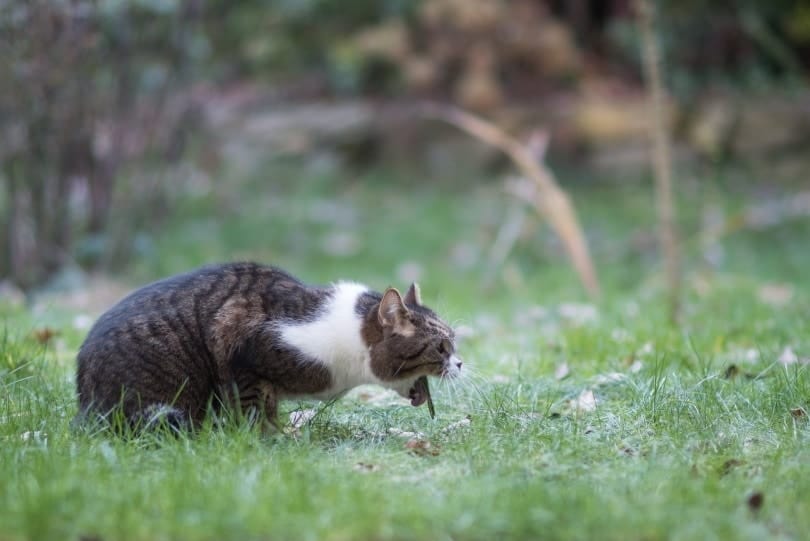It’s no secret that cats love to eat plants. In fact, a lot of common houseplants are poisonous to cats.
Easter lilies are one such plant.
If your cat eats an Easter lily or even licks some pollen, it can be very dangerous. Here’s what you need to know about Easter lily poisoning in cats and what you should do if your cat eats one.
What Are Easter Lilies and Why Are They Poisonous to Cats?
Easter lilies (Lilium longiflorum) are flowers often used as a decoration around Easter time.
All parts of the Easter lily plant are poisonous to cats, but the flowers are the most dangerous.
Easter lilies are “true lilies”, meaning they are part of the plant genus Lilium. All members of this genus produce a chemical in all parts of the plant that damages a cat’s kidneys.
Easter lilies—along with stargazer lilies and Asiatic lilies—are the most dangerous. However, all types of lilies, including the popular peace lily, are still harmful if ingested by cats.
Symptoms of Lily Poisoning in Cats
The severity of symptoms depends on how much of the plant your cat ate, as well as your cat’s individual health and size.
The most common symptom of lily poisoning is vomiting. This can be followed by lethargy, loss of appetite, and dehydration.
As the poison progresses, it can cause kidney failure. Symptoms of kidney failure include increased thirst, urination, and dehydration. Your cat may also vomit blood or have bloody diarrhea.
If your cat has any of these symptoms, it is important to take them to the vet immediately. Lily poisoning can be fatal if not treated quickly.

How Is Lily Poisoning Treated?
There is no specific antidote for lily poisoning, so treatment focuses on supportive care.
If your cat has only eaten a small amount of the plant, your vet may induce vomiting and give them IV fluids.
For more severe cases, your cat may need dialysis to support the kidneys as they fight the toxin. Blood transfusions may also be necessary.
With prompt treatment, the prognosis for cats with lily poisoning is good. However, as with any poison, the sooner you get your cat to the vet, the better their chances are.
Prevention Is Better Than Cure
Easter lilies are beautiful plants, but they can be dangerous for cats. If you have a cat, it’s best to keep them away from any type of lily. To remove the risk entirely, don’t keep lilies at home.
If you have lilies you cannot part with, or you think your cat won’t eat them anyway, you should still keep them well out of reach. Put them somewhere high up where your cat can’t jump or in a room that your cat doesn’t have access to.
You should also be careful when disposing of lily waste. If you’re throwing out lily stems, leaves, or flowers, make sure they’re well out of reach of your cat. It’s best to put them in a bag and put them outside the trash can.
Final Thoughts
The dire effects of Easter lilies on cats may come as some surprise to you, but it is a serious issue and many cats have fallen to the toxicity.
If you have any concerns that your cat has eaten a lily, or is showing any symptoms of lily poisoning, contact your veterinarian immediately. Lily poisoning can be fatal, so it’s important to get professional help as soon as possible.
Featured Image Credit: Pixabay














